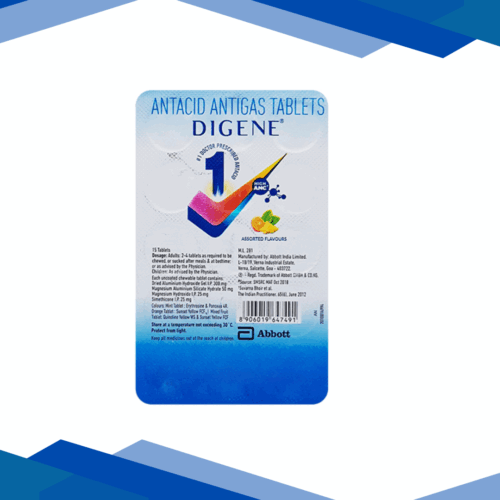ANTACIDS
Overview:
Antacids are drugs that help ease heartburn, indigestion, and stomach upset by counteracting excess stomach acid. They deliver fast, temporary relief from symptoms like a burning sensation in the chest, a sour taste, and bloating. Often used for conditions such as acid reflux, gastritis, and peptic ulcers, antacids are available over-the-counter in forms like tablets, chewables, or liquids and are generally safe when used as directed.
Classification: Acid-neutralizing agents
Uses:
Antacids are utilized to ease the discomfort associated with an excess of stomach acid, which can lead to symptoms such as heartburn, indigestion, acid reflux, and an upset stomach. They also play a role in managing conditions like gastritis and peptic ulcers by decreasing the stomach’s acidity. By neutralizing stomach acid, antacids deliver swift relief, making them suitable for temporary relief after meals or during bouts of acidity.
How it works:
Antacids function by counteracting the surplus acid present in the stomach. They are composed of alkaline ingredients such as calcium carbonate, magnesium hydroxide, or aluminum hydroxide, which interact with stomach acid to produce water and other neutral salts. This process helps to decrease acidity, alleviate heartburn and indigestion, and create a more comfortable stomach environment. By reducing acid levels, antacids also help shield the stomach lining from irritation and aid in the healing of conditions like gastritis or ulcers.
Dosage: As prescribed by your doctor.
Side effects:
Gas or bloating
Constipation
Diarrhea
Belching
Nausea
Precautions:
Individuals with kidney conditions should exercise caution when using antacids, especially those containing magnesium or aluminum, as these elements can accumulate in the body and pose health risks. If you are taking other medications, such as antibiotics or iron supplements, it is recommended to schedule antacid consumption at a different time to prevent interference with absorption. Avoid excessive use, as long-term consumption can lead to issues like electrolyte imbalances, constipation, or a rebound increase in stomach acidity. Consulting a doctor is crucial if you are pregnant, breastfeeding, or regularly using antacids for chronic stomach discomfort.
Disclaimer: This content is for informational purposes only. Always consult a healthcare provider for medical advice and proper dosage.









